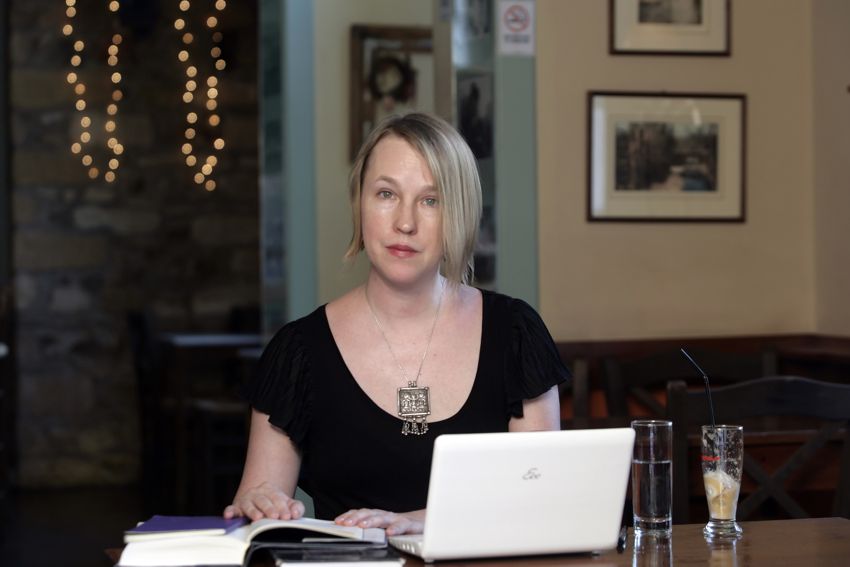This Tuesday the Secondary school assembly was lucky enough to welcome Alicia Stallings to our school- via Facebook Messenger.

Alicia Stallings is one of the most important contemporary poets. Her debut poetry collection, Archaic Smile, was awarded the 1999 Richard Wilbur Award and was a finalist for both the Yale Younger Poets Series and the Walt Whitman Award. Her second collection, Hapax (2006), was awarded the 2008 Poets’ Prize.[10] Her poems have appeared in The Best American Poetry anthologies of 1994, 2000, 2015, 2016, and 2017. She has been awarded a Pushcart Prize, the Eunice Tietjens Prize, the 2004 Howard Nemerov Sonnet Award, and the James Dickey Prize.
In 2010, she was awarded the Willis Barnstone Translation Prize. In 2011, she won a Guggenheim Fellowship,[11] received a MacArthur Foundation Fellowship[12] and was named a Fellow of United States Artists.[13] In 2012, the book Olives was a finalist for the National Book Critics Circle Award.[14] She is a Fellow of the American Academy of Arts & Sciences.
As well as telling us something about being a poet, she read some of her poems to us. She belongs loosely to “Formalist” genre of poetry, and as one reviewer wrote: “When she unleashes her technical gifts upon poems in which she builds a new narrative instead of building upon an old one, Stallings achieves a restrained, stark poise that is threatening even by New Formalism standards.”
And what she unleashed on us was certainly absolutely wonderful.
Ms Stallings answered some of our questions and even read to us the poem in which she felt she first found her own individual voice.
She is fascinated by mythology and many of her poems make reference to how we can understand the world through these myths.
Alicia Stallings has become much involved in the immigration crisis in Greece and has found that recently she has become much more political through her poems. She read us a “list” poem, which made us painfully aware of what the life of a refugee is like.
Alicia Stallings mentioned poets who have influenced her greatly and spoke about what it was about these favourites that moved her.
In addition, she talked about having fun with poetic forms..such as syllabic verse, and we will soon be inspired by her to try writing FIBS…..poems that have a very specific syllable count and structure- ourselves.
This was a moving and interesting talk and we are honoured that she gave us her time.

